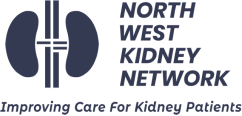Kidney care contributes significantly to the NHS carbon footprint. A key area of focus is dialysis – as this requires a disproportionate share of NHS resources, with correspondingly high cost and environmental impacts. Globally, it is estimated that the roughly 2 million dialysis patients require 2 to 3% of healthcare budgets and that their care might be responsible for 14 million tonnes CO2e per year. Around 68,000 patients receive dialysis annually in the UK, a number increasing year-on-year. Recognising this, the renal community are beginning to drive sustainable change within the specialty, with a focus on tackling emissions from procurement, travel and energy use.
In this space you will find guidance, resources and further information about sustainable kidney care across the NHS.
Kidney care contributes significantly to the NHS carbon footprint. A key area of focus is dialysis – as this requires a disproportionate share of NHS resources, with correspondingly high cost and environmental impacts. Globally, it is estimated that the roughly 2 million dialysis patients require 2 to 3% of healthcare budgets and that their care might be responsible for 14 million tonnes CO2e per year. Around 68,000 patients receive dialysis annually in the UK, a number increasing year-on-year. Recognising this, the renal community are beginning to drive sustainable change within the specialty, with a focus on tackling emissions from procurement, travel and energy use.
In this space you will find guidance, resources and further information about sustainable kidney care across the NHS.

